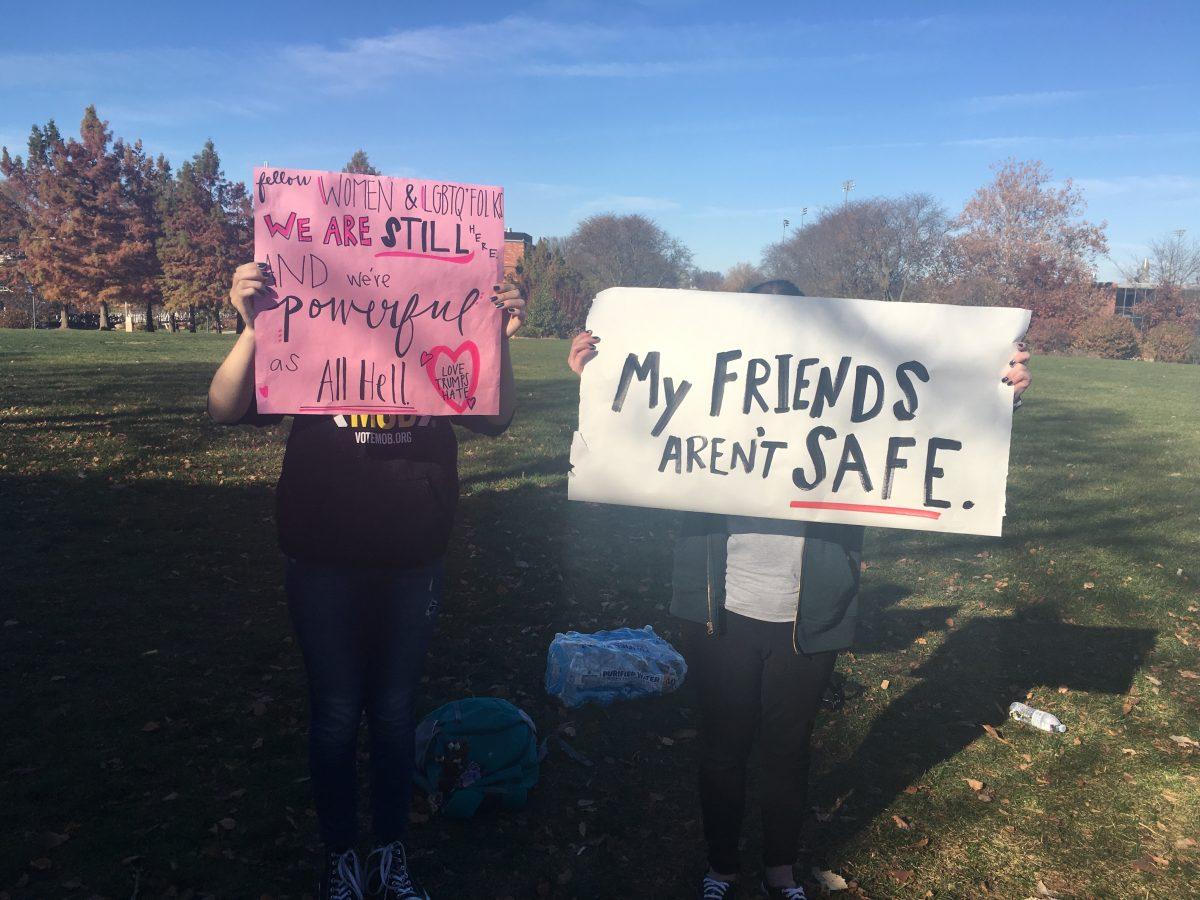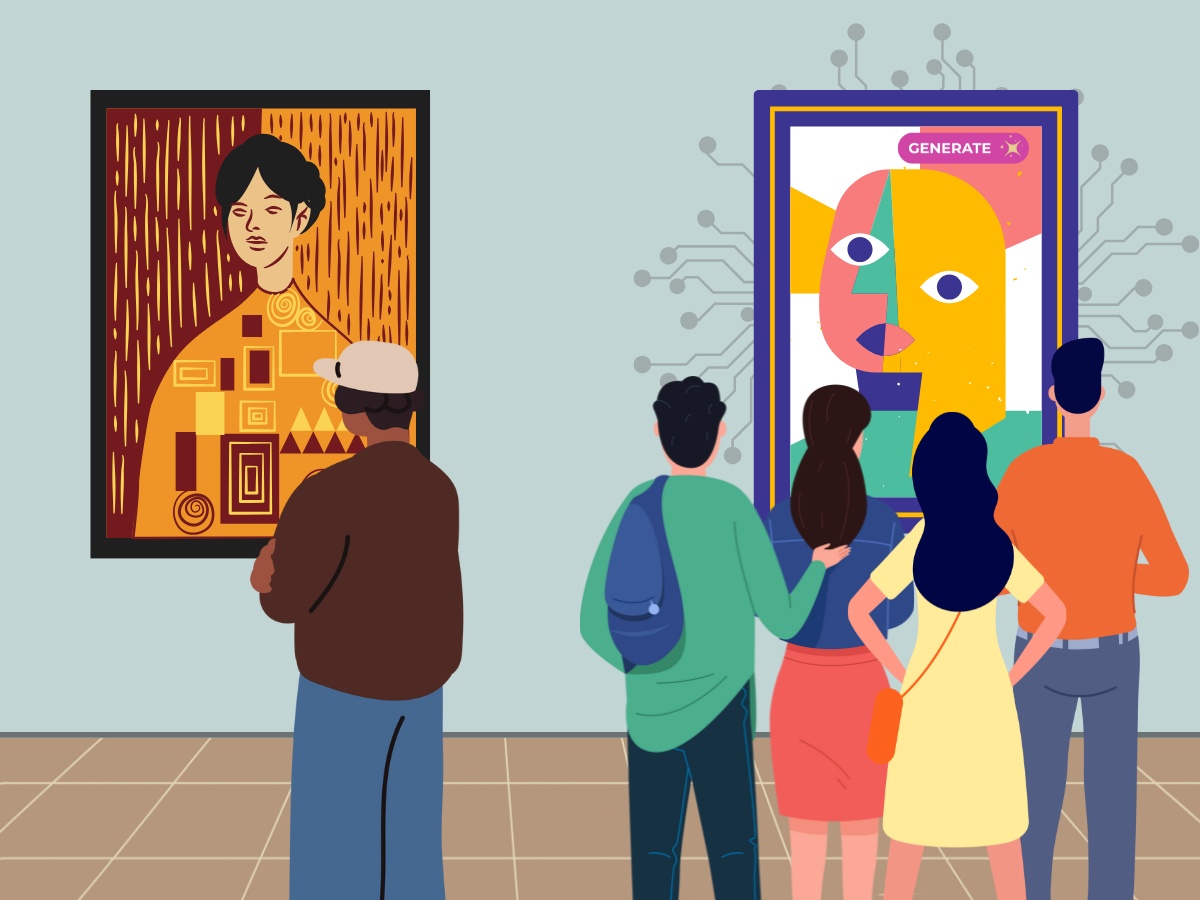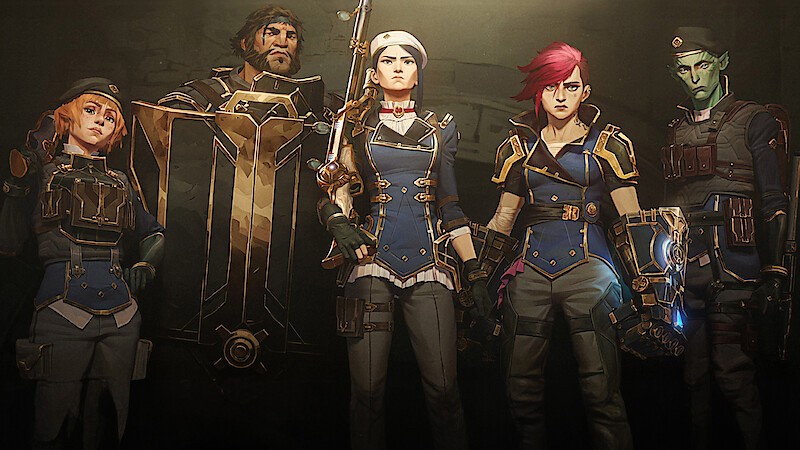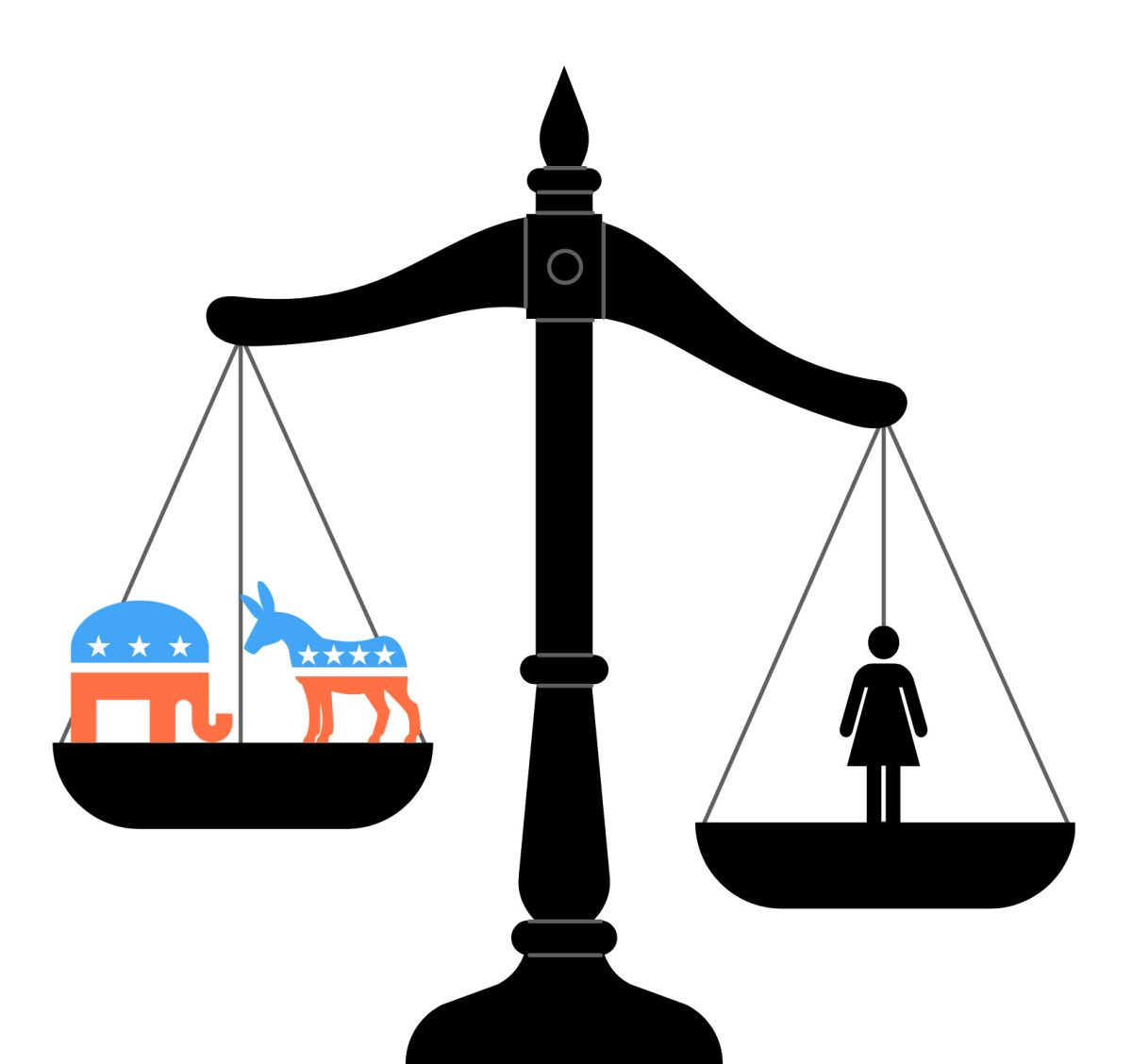Photo by Jessie Spangler | Students hold signs in Helmick Commons Wednesday, following the news of Trump’s victory in the general election.
BY KATHERINE BAUER
Drake University Provost Sue Mattison notified students Wednesday afternoon that she and President Marty Martin would address students’ concerns in a town hall. This comes less than 24 hours after Donald Trump was declared the U.S. President-elect Tuesday night.
In a packed Levitt Hall, Martin and Interim Dean of Students Jerry Parker, along with a panel of three professors, addressed questions and concerns. The town hall-style meeting lasted for nearly two hours, while students asked questions.
Mattison began the discussion by saying that administration is hearing the difficulties students are facing after Donald Trump was elected president.
“It’s been a challenging week,” Mattison said.
Martin encouraged students to stay engaged in dialogue.
“We need to be willing to talk and share our thoughts,” Martin said. “I am optimistic that you will do better than (my generation has) done … even in the pain.”
The first student question asked where the line is drawn between free speech and hate speech and hate crimes, referring to the hateful posters taped to two Latina students’ dorm door early this week.
Professor of law Anthony Gaughan addressed the question first. He said the First Amendment does not give the right to break the law, threaten, intimidate or isolate others.
“(The posters were) an attack on free speech itself and it has a chilling effect,” Gaughan said.
Another student asked what students can do to start healing after both the posters and Trump’s election, which have been upsetting to some students.
Politics professor Rachel Paine Caufield addressed the partisanship of generalizing groups of voters.
“We’ve seen both sides (of the political spectrum) paint each other with very broad brushes, “Caufield said. “I think the first and foremost thing we need to do is take a nap.”
Senior Kenia Calderon, an undocumented student from El Salvador, asked what Drake was going to do when Trump called for the deportation of illegal immigrants. She said that in her eyes, it was not a matter of if the order came, but when.
“We will challenge those actions that threaten our values,” Martin said. “If that day comes, you won’t stand alone.”
Another question posed was how the administration will be able to stand against policies that will come from a Trump White House, especially if it does not align with Drake’s values.
Parker addressed the topic, saying that Drake’s statement of nondiscrimination, code of conduct, and policy on sexual and interpersonal misconduct are not a political agenda or up for election. He said that those beliefs and values will continue to stand.
One student expressed concern that some conversations on campus would force her to listen to ideas and beliefs she fundamentally disagrees with. Caufield told her to look for shared values. Providing an example, Caufield said that two people may believe in equality, but how they end up with their specific idea of equality is unique and important to understand.
“There’s something beautiful in that shared value,” Caufield said.
Tony Tyler, director of student engagement, equity and inclusion joined in the conversation. He noted that for him, conversations about his queer identity with those who dismiss that sexual orientation, is not on the table for discussion.
“Expecting us to have a conversation with our oppressors about why their oppression is okay is not (the type of conversation that needs to be had),” Tyler said. “I will talk to them about a number of other things.”













